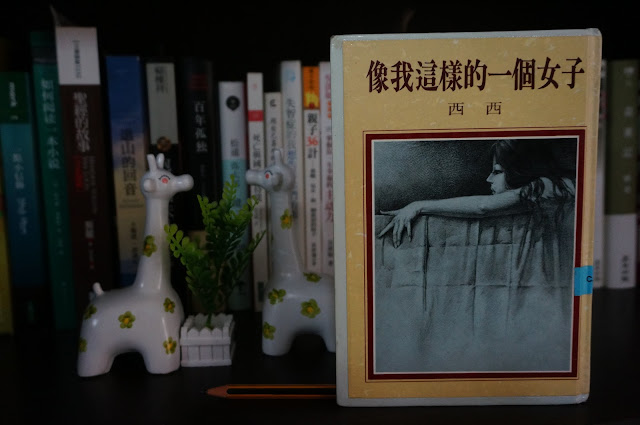降头、旧书、跳蚤市场和一只碟子(Curses, Old Books, Flea Markets, and a Plate)
XX,指的是班上一名我未曾某面、却与他们共处多年的同学。在我加入兴趣班前,他因事故不幸辞世。一次,他在国外生活的女儿回老家整理遗物,带着父亲留下的画册和碑帖到班上,看看谁感兴趣。一大叠书,瞬间售罄。
“也对,衣服和用品,还是别乱买二手的好。你哪里知道衣服的主人有没有皮肤病,床垫是不是死过什么人……”同学绘声绘影地说。老师也补了一句:“旅行时,那些木雕,你们也千万别随便买。”
接着,老师就像讲一个传说那样,娓娓道来他身边一名画家的故事。画家到巴厘岛旅行,看上了三个木雕patung,爱不释手,立马买下。回新加坡后,他送走两个,自己留一个。其中一位朋友收了木雕不久便中风;另一位也紧接着出了意外,匆匆离世。画家大惊失措。后来,他收看电视节目才知道,有些木雕被人下了降头,不能随便带回。
“那怎么办?赶快丢掉?”我问。“不能!”老师厉声斥责。同学们也严肃表示:“请回家了,就不能随便丢!”
我耸耸肩,想起小时候收看过不少东南亚降头电影,长大后,清楚自己胆子有限,想象力无穷,未免把日子过得提心吊胆,早就主动避开这类题材。若不是大家聊起,这些故事早已离自己的生活很远、很远。
“那后来呢?那木雕下落如何?”同学们追问。老师说,画家赶紧把它拿去乌节路的古董店卖掉,至于下一个买主是谁,也就不得而知,更无可厚非了……
说回二手货,其实仔细一想,也未必那么可怕。你不买二手碗碟,难道就不去餐厅和小贩中心用餐?那里的碗碟,何止二手,简直是无数人用过呀!重点是清洗干净,消毒妥当便无妨。
我对名牌包没兴趣,新的不看,二手的不买。但办公室附近有家二手书店,却是我常常流连之地。那里书柜成排,像是宝藏,总能淘到一些或已绝版,或一般书商不进口的好书。况且,新加坡的书价向来相当高昂,二手书的价格却非常亲民,就差当成旧报纸按斤卖。我常常一买好几本,遇到喜欢的,也曾顺手帮朋友多买一本。
除了书,我也很想到跳蚤市场寻找旧物。日本作家松浦弥太郎不就特别喜欢逛跳蚤市场。在他笔下,淘来的老家具、古书、旧杂货、老照片、旧信件、甚至是破旧的纸张,都带着时间的味道和故事的重量。他说,去跳蚤市场,是为了寻找意想不到的相遇。每此读到他描写的二手旧物,总会心一笑,感觉暖暖的。
我喜欢的一名博主“黑兔兔”,也从欧洲的跳蚤市场带回精美的物件和满满的灵感,在台湾的小地方布置出别致有格调的咖啡厅。
其实,给还可以用的东西再生的机会,不只是环保,当这个世界处处充斥着AI,令人倍感窒息之时,能拥有这些有温度、有故事的老物件,岂不显得愈发弥足珍贵?
除了买二手书,旅行时,我也淘过几只二手陶瓷碟。碟子上绘着精致的图案,我老想着该拿它来盛甜品,还是当墨碟用?想着想着,时光过去了,它依然静静地待在架子上,成了一个美丽的摆件。看见它,便不自觉地微笑一下,日子多了点小确幸呢!
Curses, Old Books, Flea Markets, and a Plate
I can’t quite recall how the conversation began. It was a casual moment when our teacher suddenly blurted out, “Hey, you women love buying second-hand luxury bags, don’t you?”
But everyone immediately shook their heads and denied it, insisting they wouldn’t dare touch anything someone else had used.
“I wouldn’t go for second-hand either,” one classmate added. “Unless it came from someone I know—like those artbooks from XX.”
XX referred to a classmate I never had the chance to meet. He had passed away in an accident before I joined the class, but the others had known him for years. One day, his daughter returned from overseas to sort through his belongings and brought his artbooks and calligraphy collections for anyone who might want to have them. A tall stack of books vanished in an instant.
“Yeah, clothes and personal items—better not mess with second-hand. You never know if the previous owner had a skin condition, or if someone died on that mattress...” oa classmate said dramatically. The teacher added, “And when you travel—those wooden carvings? Never bring them home casually.”
Then, like reciting a myth, our teacher began to tell the story of a painter he knew. The artist had traveled to Bali and fallen for three wooden statues—patung, they’re called. He bought all three on the spot, completely enchanted. Back in Singapore, he gave two away and kept one for himself. Soon after, one of the recipients suffered a stroke. The other died unexpectedly. The artist was shaken. Later, watching a TV program, he learned that some wood carvings are cursed—used in black magic—and aren’t meant to be casually taken home.
“So what do you do then? Just throw it away?” I asked.
“You mustn’t!” the teacher snapped. The entire class nodded gravely. “Once it’s in your home, you can’t simply toss it.”
I shrugged, remembering the Southeast Asian horror films I’d watched as a child. As I grew older, I realized I wasn’t particularly brave but had an overactive imagination. To avoid living in fear, I avoided these topics altogether. If not for today’s conversation, these stories would have remained distant, fading at the edges of my life.
“So what happened next? What about the statue?” someone asked.
The teacher said the artist rushed to sell it to an antique shop on Orchard Road. Who bought it in the end remains a mystery. But perhaps, once it’s out of your hands, you’re no longer to blame.
Back to second-hand goods, on second thought, maybe it’s not all that scary. People avoid second-hand dishes, but don’t we all eat at restaurants and hawker centres? Those plates and bowls—how many mouths have they passed through? Dozens? Hundreds? As long as they’re properly cleaned and disinfected, what’s the harm?
Personally, I’ve never been interested in luxury bags—whether new or used. But there’s a second-hand bookstore near my office that I absolutely love . Its shelves are like treasure troves, filled with rare finds—some long out of print, others never brought in by regular bookshops. Books in Singapore tend to be expensive, but second-hand ones are surprisingly affordable—almost as if sold by weight, like old newspapers. I often leave with a pile, and when I find a good one, I’ll pick up an extra copy for a friend.
Aside from books, I’ve always wanted to visit a flea market for vintage treasures. The Japanese writer Matsuura Yataro, for instance, has a particular fondness for flea markets. In his essays, he describes how old furniture, antique books, vintage trinkets, faded photographs, worn letters, and even scraps of paper all carry the scent of time and the weight of untold stories. He once wrote that going to a flea market is about seeking unexpected encounters. Whenever I read his reflections on second-hand objects, I can’t help but smile—it’s such a warm feeling.
There’s also a blogger I like, named "Black Bunny" who brings back exquisite finds from European flea markets and uses her vintage treasures to decorate a small café in Taiwan, turning it into a space brimming with charm and character.
To give once-loved things a second life isn’t just about sustainability. In a world increasingly overwhelmed by AI and the artificial, isn’t there something especially precious about old objects that still carry warmth—and stories?
Besides books, I’ve also picked up a few second-hand ceramic plates while traveling. One, in particular, has a delicate, intricate pattern. I still can’t decide whether to use it for desserts or for ink. Time has passed, and the plate now rests quietly on the shelf—more ornament than object. And whenever I glance at it, I can’t help but smile. One of life’s tiny, perfect joys.


以前我家附近有一间文具店有卖旧小说书本,五块钱一本,我看到喜欢的就会买回家,我就是很喜欢阅读旧书的味道。
回复删除二手的碗碟我是可以接受,成人穿的衣服就不行。
击掌!旧书本首就有故事……
删除衣服我也比较挑,不只不买二手,也不太喜欢收到新衣服做礼物,因为比较喜欢自己挑选的,哈哈